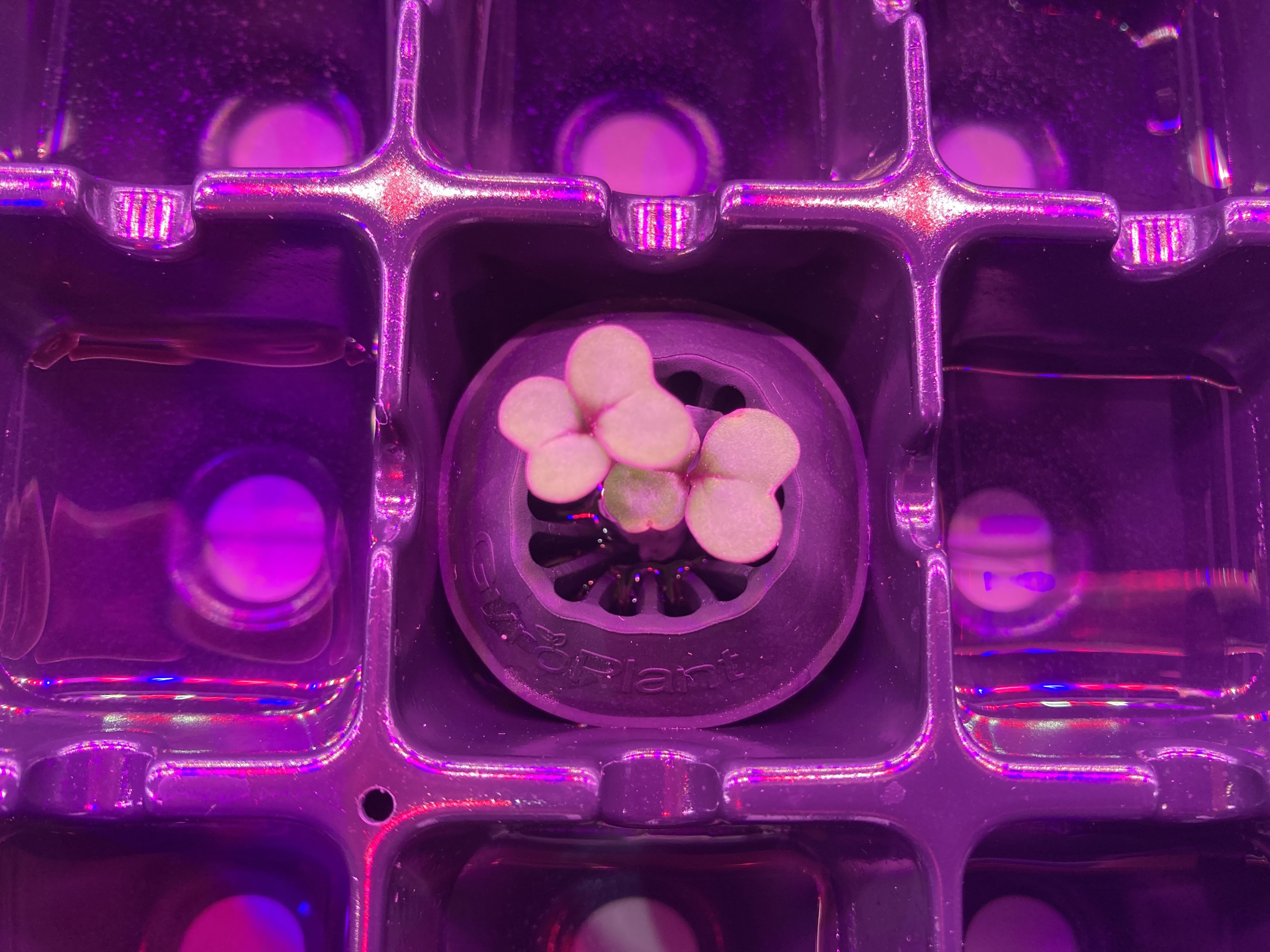Total Controlled Environment Agriculture and Controlled Environment Agriculture (T/CEA) have the power to significantly impact food security by extending production capacity beyond the constraints of dwindling and deteriorating arable land, boosting the availability of fresh produce in a sustainable manner, and making effective use of natural resources.
Nevertheless, the T/CEA sector currently still mostly depends on unsustainable disposable substrates and net pots (composed of either synthetic or natural fibres) that are imported to the UK from around the globe. Given the recent large expansion of T/CEA worldwide, it is imperative to address the industry’s over-reliance on carbon-intensive, unsustainable pots and substrates and lessen its reliance on global supply chains, vulnerable to uncertainty.
To address this problem, GyroPlant has created a transformative technology for the indoor growing industry – GyroCup. Composed of sturdy, food-grade silicone rubber, GyroCup offers a reusable superstructure to grow plants. In numerous instances, it removes the need for substrates. However, early R&D showed that in larger T/CEA farm systems, GyroCup combined with a small quantity of substrate (i.e., for moisture retention) during the germination stage of plant growth might be advantageous.
In November 2023, GyroPlant started a new research and development project together with CHAP, jointly funded by Innovate UK (IUK) and the Biotechnology and Biological Sciences Research Council (BBSRC) as part of the 2023 Novel low-emission food production systems funding competition.
A major benefit of this collaborative 20-month industrial research project lies in improving farm resilience and self-sufficiency. CHAP, working together with GyroPlant, will be conducting plant growth trials at CHAP’s Vertical Farming Development Centre (VFDC) located at STC, to determine the most optimal growing protocols using GyroCup in combination with a range of sustainable substrates or seeding technologies, in different types of T/CEA fertigation systems.
In the second strand, GyroPlant will lead the design of machinery committed to automating the seeding process for its GyroCup technology. In the concluding phase of the project, GyroCup’s automation module, paired with the ideal growing recipe identified in the first strand, will undertake rigorous testing in an on-site trial with a partner vertical farm.
Upon launching the project, Marcus Comaschi, GyroPlant’s founder, commented — “We’re delighted to be working with the highly experienced team at CHAP. Their dedicated plant scientists, backed by state-of-the-art facilities, will play a crucial role in identifying the perfect GyroCup protocol for different industrial irrigation technologies ”.
Dr Aurélie Bovi, Innovation Sector Lead at CHAP, said: “Through this industrial research project, GyroPlant and CHAP aim to demonstrate the scalability of GyroCup use and determine which combination is the most productive, sustainable, and cost-effective growing method in T/CEA systems. GyroCup provides a real opportunity to help the sector increase its resilience whilst reducing costs, waste and GHG emissions attached to unsustainable practices.”
For more information, contact CHAP at enquiries@chap-solutions.co.uk or visit www.chap-solutions.co.uk












